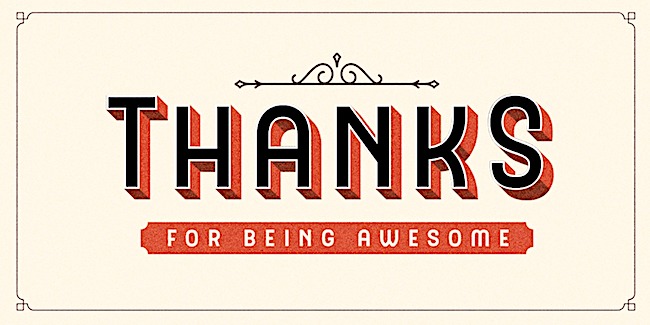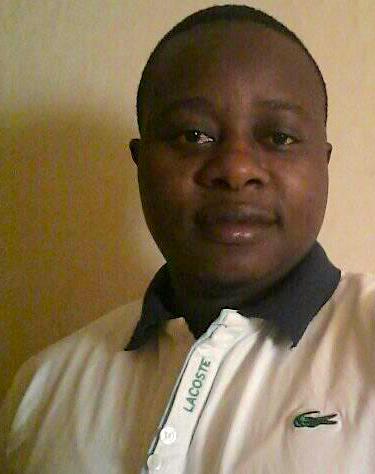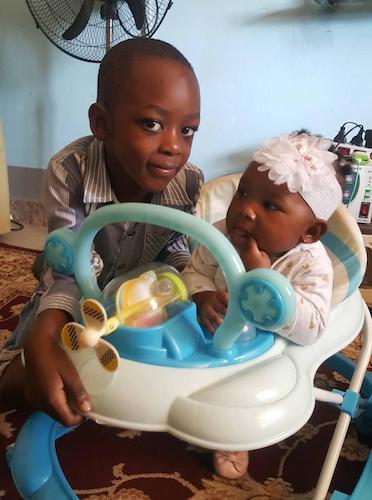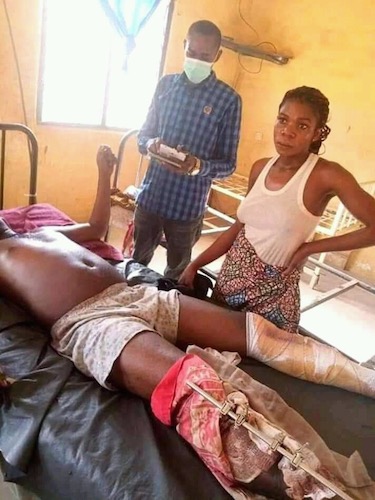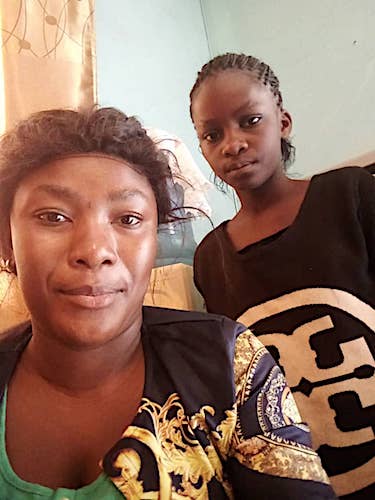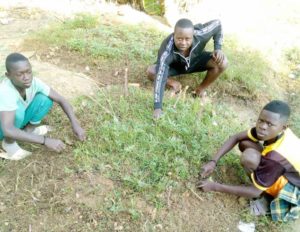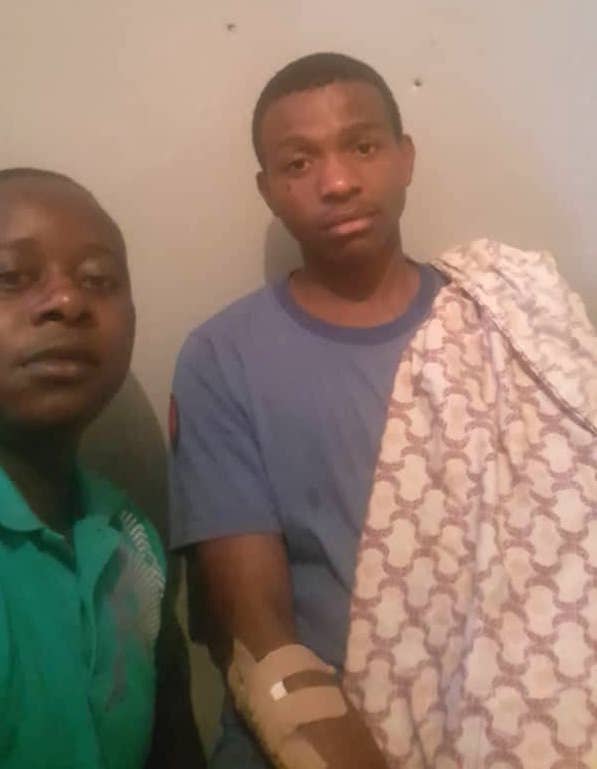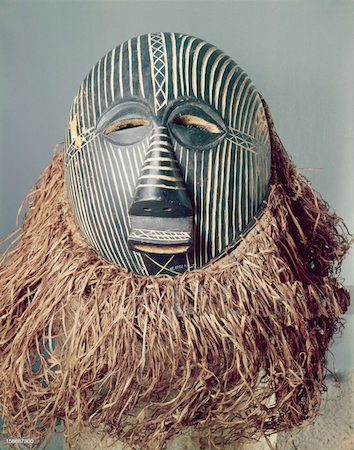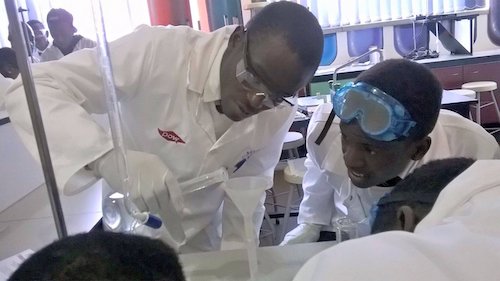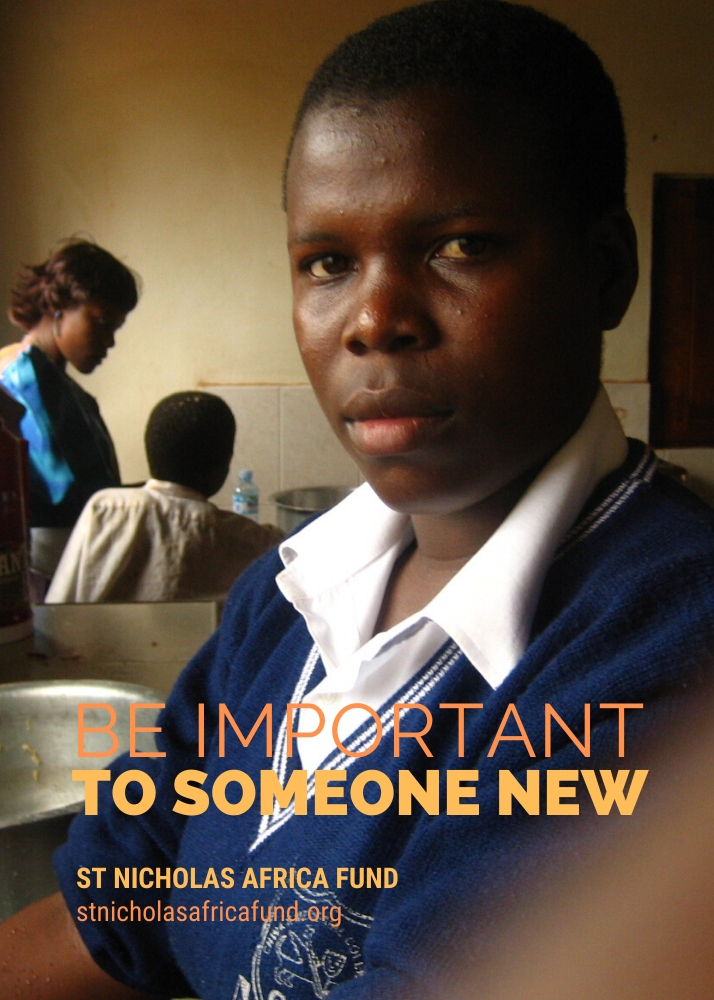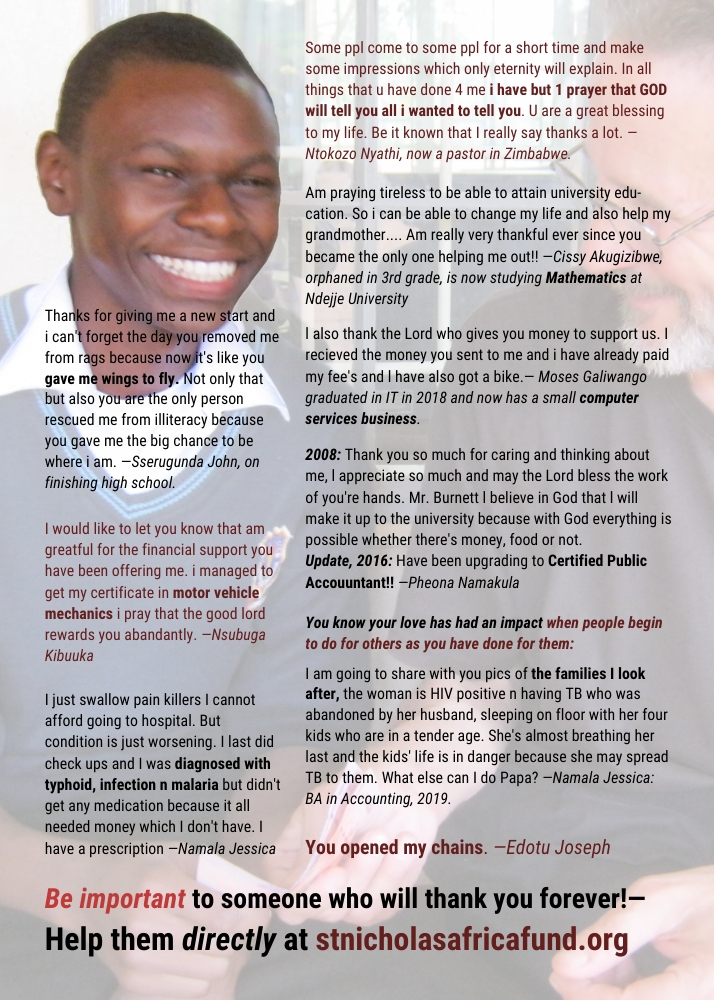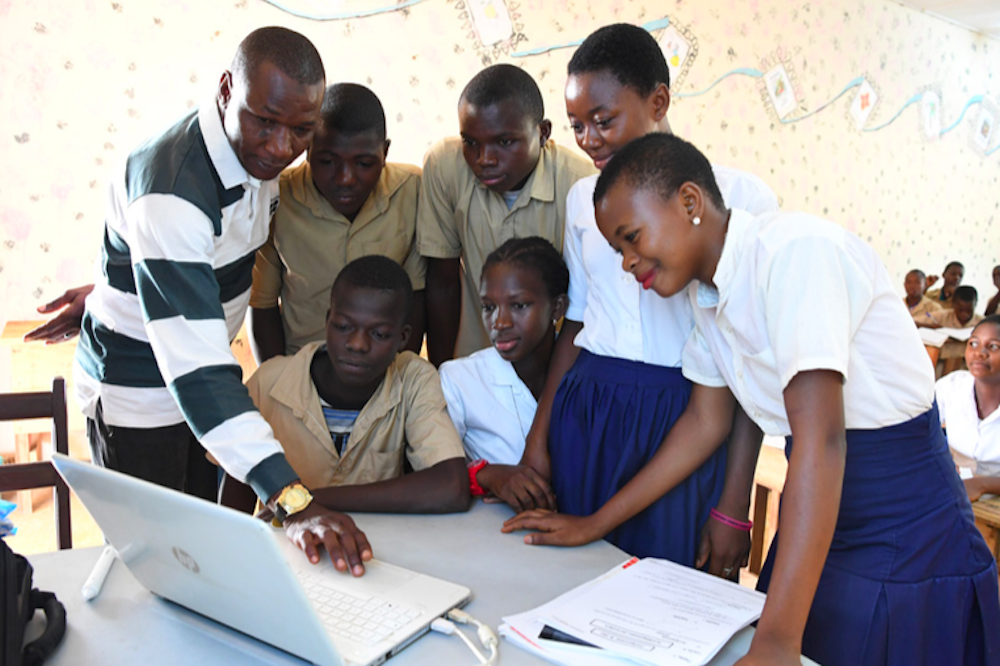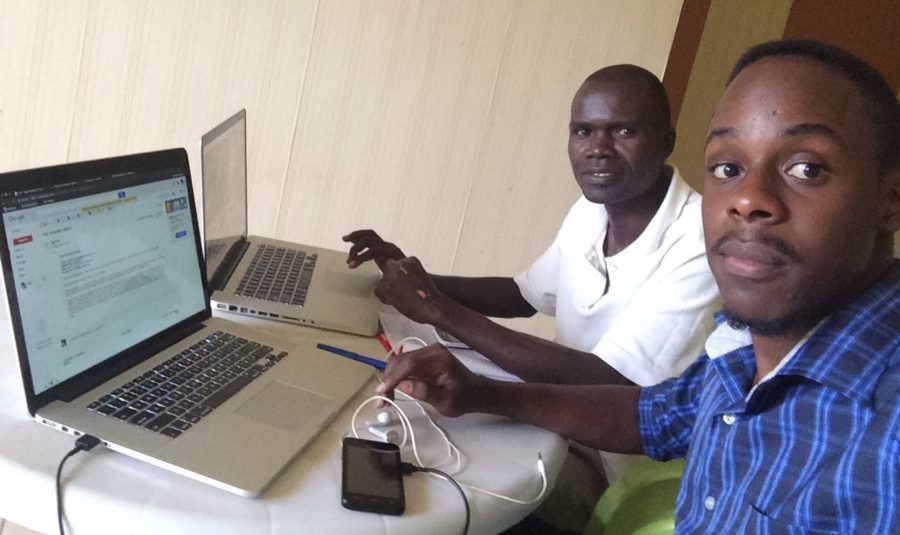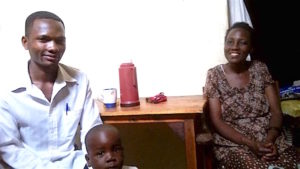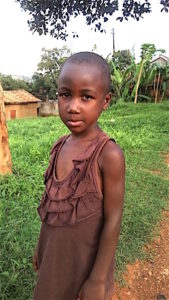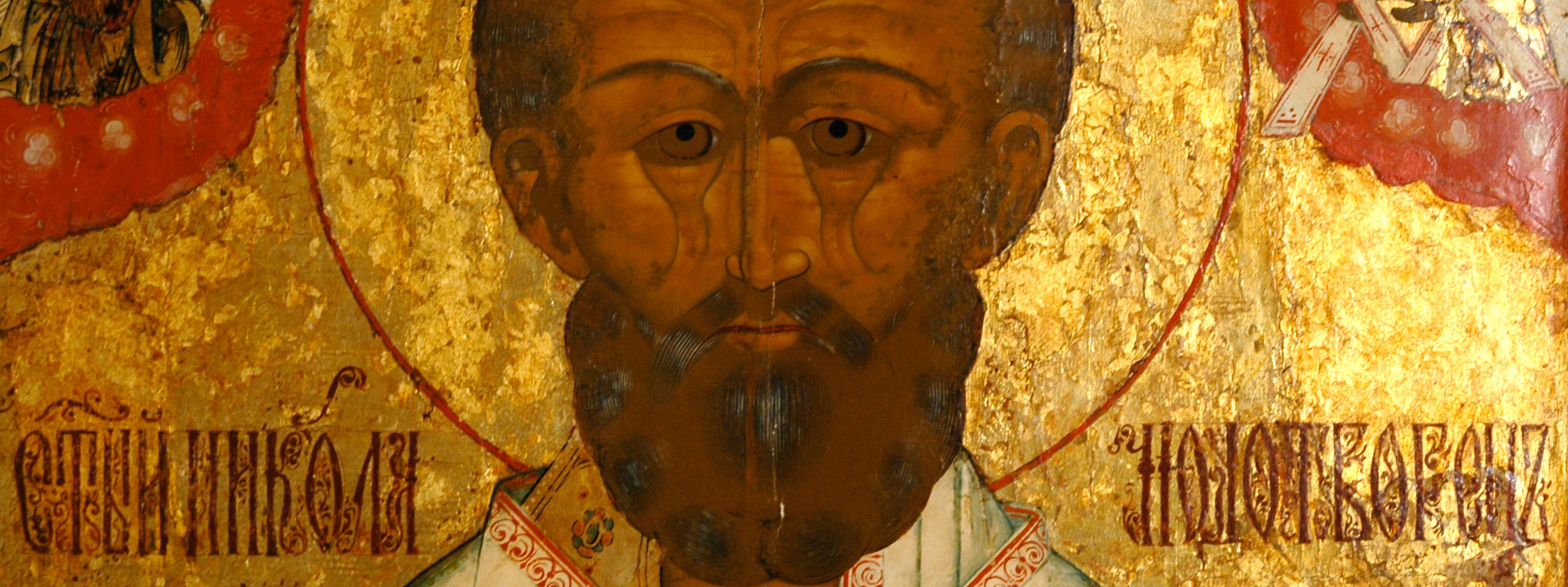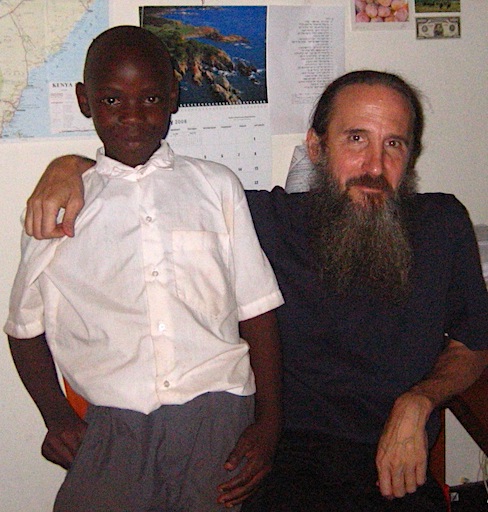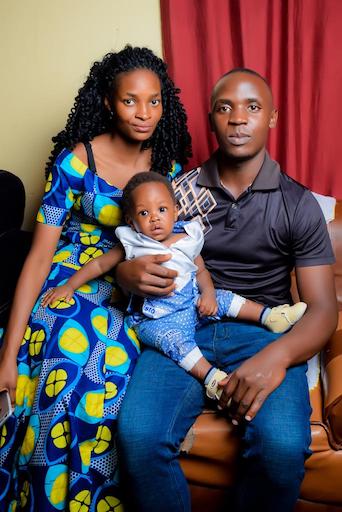Last week i wrote of how I’m trying to respond to Uganda’s ubiquitous poverty and disease. I said that we were somehow running an ambulance service. I’ll have to post that essay separately tomorrow.
There will never be a time when an ambulance isn’t dealing with an emergency. So please don’t imagine that I’m just crying wolf or that there will be an end to these appeals.
So yes, when i come begging for help with the latest emergency— remember that Emergencies “R” Us!— and emergencies are always serious.
But this time—
—kindly let me talk about the Church in Africa, and how i’m trying to respond to what’s going on with that. Because if you don’t understand what’s happening in the Church here, you’ll have a very unrealistic picture of “Orthodox mission” (or of any mission), and of what we need and what to support and what we should not support— even when organizations other than mine come begging.
Mass baptisms!
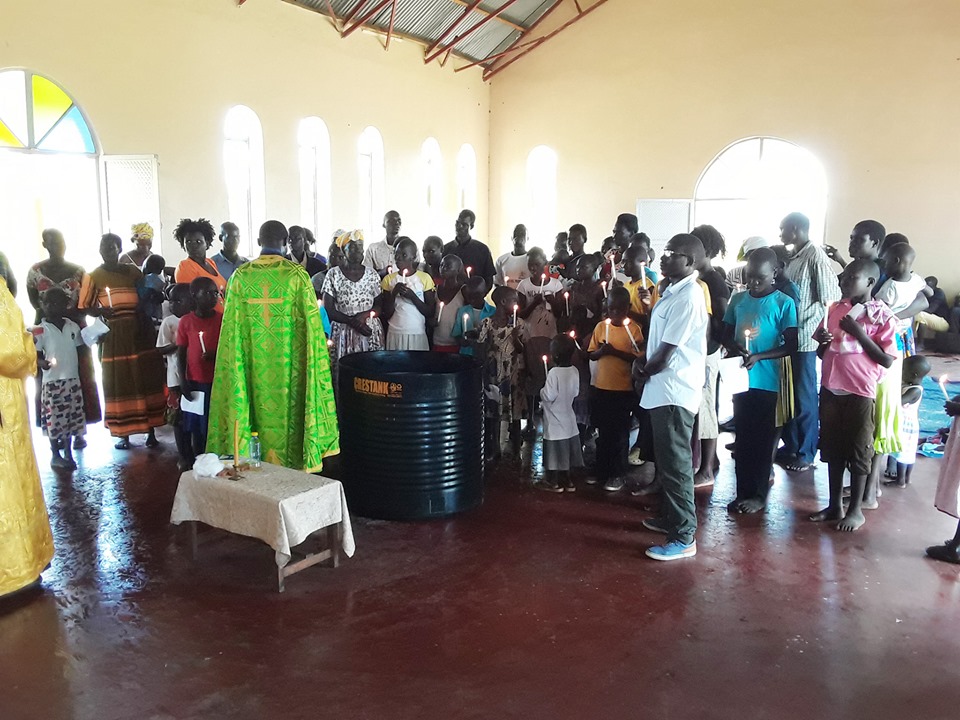
“75 souls united to Christ in Baptism in Uganda.” (Courtesy orthochristian.com)
Missionary organizations, including the Orthodox one in America, love to show pictures of mass baptisms and colorful natives happily learning the “Orthodox Way of Life” despite all their troubles. We’re succeeding! Hope springs up in the deep village! Theosis warms the hearts of the Poor!
You may not notice, though, that there are seldom any pictures of the urban poor.
“Go forth” is the slogan— porefthentes, Mt 28.19— “and preach— and baptize!”
Well, about that. I know a Muslim girl now living in Jeddah, Saudi Arabia, who was baptized three times. Every time the Greeks came, the priest invited the school kids, “Come and get baptized! Get a godparent to pay your school fees!” She never did get a Greek sponsor, although I myself helped her finish high school later on. At the time, I didn’t even know whether she was Orthodox or not. I don’t sell the faith, and i don’t ask people to become prostitutes.
She texted me on facebook some years later to thank me. She was grateful for the education, but she had remained Muslim despite all her baptisms. I’m happy that she’s doing well in Jeddah now.
Collapse and its reasons
The instability of rice conversions is only a minor part of why the Orthodox Church in Africa has all but collapsed— collapsed at least from one point of view. The other point of view is that it hasn’t collapsed at all— the Russians are just taking over. And they seem to be doing ok— so far. Anyway, the Alexandrian Church is pretty upset, but there’s not much they can do about it.
The Uganda Church, which is part of the Patriarchate of Alexandria, is down from 50 clergy to 18 or so. I can’t get anyone to actually tell me exactly how many. Rwanda, I hear, is down to 6 clergy, if you count uneducated readers. I’ve heard that western Tanzania is down to 1 priest, thought i admit no verification.
It seems the Russians have simply bought up half or more of the Orthodox clergy in Africa, because the Greek churches have never paid them a living wage. $200 a head for some scores of priests, plus some nice vestments and a few tickets to Russia, is a heck of a cheap foreign policy, and it’s bought a lot of good will for Russia throughout villages all over Africa.
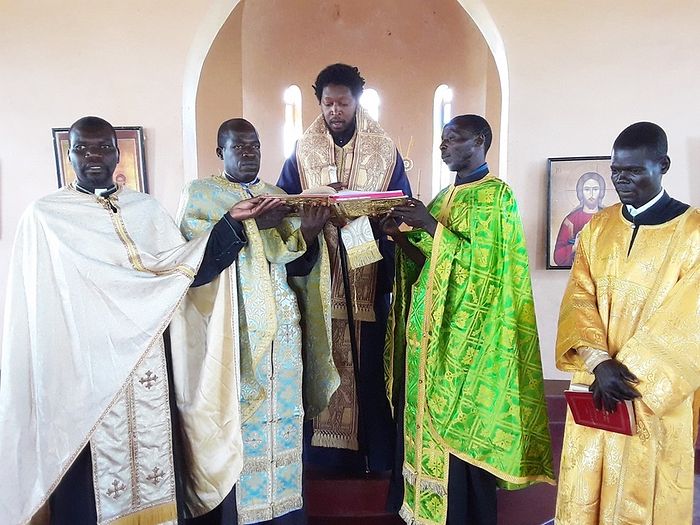
Bishop and priests presiding over the baptism shown in the picture above. At least two of the three priests in this picture have since joined the Russian Church.
Meanwhile, back at the Alexandrian franchise, we’re so short of priests and people here at “Aghia Sophia Cathedral” (aka St Michael’s Eritrean Orthodox Church, pop. 3000), that for the whole year i’ve lived here, we haven’t had a single service except on sundays— and often enough not even on sundays, not least because the few priests we have are forever going to Greece. We won’t even have services here for Pascha and Pentecost this year. Orthodoxy is a Greek religion, and for those who can, it’s best experienced in Greece. So— “Go Forth (porefthentes)!“— Go to Greece!
Invasion!
Officially, the Russian “invasion”, as Alexandria calls it, has to do with the schism between the Greek and Russian blocs in the church over Istanbul’s recognition of the Ukrainian nationalist church. But of course, behind all “official” explanations, the Alexandrian, Constantinopolitan, and Muscovite involvements with American and Russian foreign policy are obvious to anyone with eyes to see— or who knows about a certain Freedom of Information release.
One hardly needs to speculate that tiny beleaguered churches struggling to survive under hostile Islamic regimes may take practical decisions that are at some odds with what they might do in sunnier eras. Maybe that’s why Elpidiphoros recently managed to compare Trump to St Emperor Constantine. But in my own impetuous lack of good sense, i image that ours may be a time for witness, not for diplomatic alignments, and that the latter aren’t doing us any good anyway.
“Witness”, however, in Greek, is ‘martyria / μαρτυρία’— martyrdom— which doesn’t include preserving ancient privileges or sometimes even earthly existence. But all that’s above my pay grade. The main thing is to proclaim the good news of Jesus, the Messiah.
And that’s exactly what I don’t see happening and why i don’t foresee the Russians as likely to succeed in bringing Christianity to Africa any better than the Greeks have, unless they change their ways and start teaching the Bible.
Let’s take the girl in Jeddah as a warning— even three baptisms did not make her a Christian, and in fact, it was clear she had no idea what Christianity is. So, buy all the priests you want, and increase your magic sacraments— but just know that Islam is growing very rapidly. Only One God is a lot easier for people to accept than Only One God in Trinity.
So if you can’t show why we have to speak of God in Trinity, you’re not ready for ordination. We need people who can make clear what the Church’s experience of God is, as the apostles and prophets reported it in the Scriptures, and for sure I don’t know a single priest here who can do that.
Because you can’t talk about the Trinity One in Being and Undivided, before you talk about the Trinity in Scripture.
Building churches
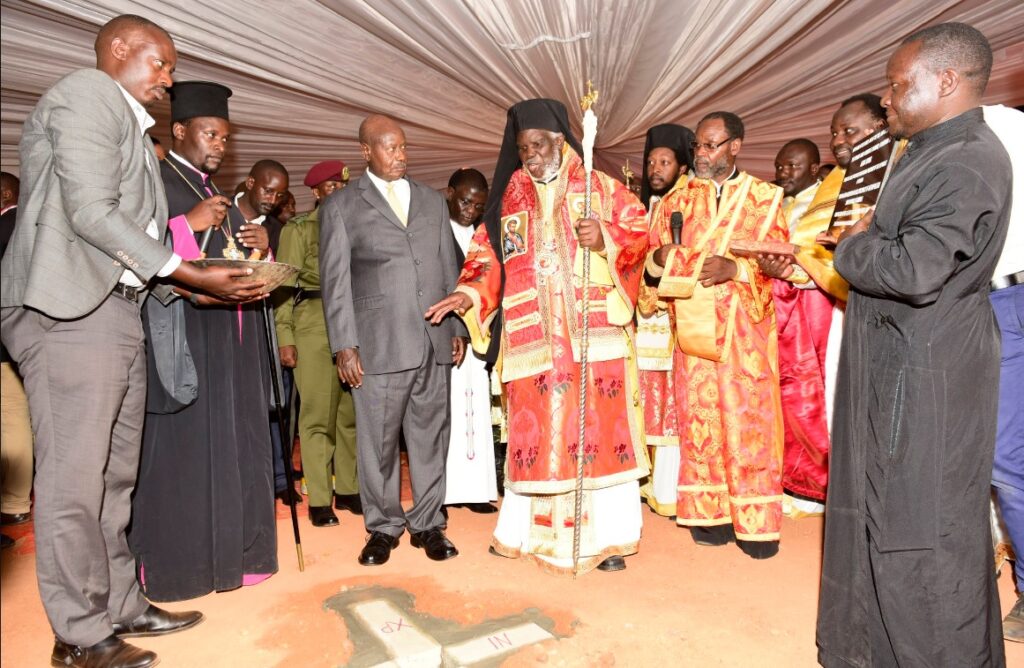
His Eminence Archbishop Jonah Lwanga of Kampala (d. 2021) lays the foundation stone of Orthodoxy’s future Aghia Sophia Cathedral in 2019, with His Excellency Yoweri K Museveni, President of Uganda. The cathedral, intended to be a replica of the famous Hagia Sophia Church in Istanbul, will have a capacity of 2,500 and was projected to cost $4.5 million (17 billion Ugandan shillings) at the time this picture was taken. This figure is now given as €7.5 million euros, or $8.1 million dollars. Mr Museveni (at the Archbishop’s right) pledged $106,000 toward its construction, and to help with fundraising.
A friend of mine is the “catechist” at one of our parishes. Being a “catechist” here is a big thing. You have a title, and you get a robe. What you don’t get is any kind of training or support.
This particular catechist— who by the way really ought to be trained and ordained, because he’s actually passionate about serving the Church— this particular catechist started a small sub-parish in a village some distance away from his main church. At first they were meeting in people’s houses. But then he found that some of the people there didn’t really like each other. If the service was in one family’s house, one guy wouldn’t come. If in his, one of the founders wouldn’t come. If elsewhere, neither would come. And so forth. With only five or six families, that’s a community in trouble.
So his solution was to get a small plot of land and construct a church out of eucalyptus poles and iron sheets. Now, everyone could come to a neutral place for “Orthodox Services”.
But for some months more lately, my friend has been working in Kampala. And the rains are hard and the termites many, so we learned that the tin tabernacle had collapsed. And no one there could lead lay services anyway; and besides that, there are no books, so— ah well, like everybody else, we’re all “Born Again” anyway— so what does it matter.
Note the pattern, though— instead of building community, instead of helping people to love and serve one another and even their enemies, my friend built a building.
I’m not blaming him. I get an Orthodox missionary journal where a nearby bishop writes, “We offer what we can to our unpaid Priests and our collaborators”, and then appeals for money to build a somewhat fancy “spiritual center”, “The creation of spiritual centers in every area where the word of God is sown is imperative and necessary.” He does not appeal for help in paying the priests, and not much if any teaching at all is going on even in the buildings he has. But I think people just don’t know where else to start.
As I mentioned, there are not enough priests for services here at the future Aghia Sophia, and we have a congregation of around 10, of whom 5 are little kids— but we’re fundraising for a €7-million-euro cathedral in a location that’s actually not very easy to reach without some commitment.
Just for perspective, St Michael’s Eritrean Church, presently using a church they built on the Aghia Sophia property at the former Archbishop’s invitation, usually draws 3,000 people (compared to our 10 people) on every big feast day, and at least a five hundred nearly every day during Lent.
But instead of paying priests and training community organizers to proclaim God’s good news concerning the poor (Isa 61.1; Lk 4.18), or announcing the reign, or rather, government of the risen Messiah throughout the surrounding burbs, we’re raising seven million euros to build a grand new Cathedral.
It doesn’t seem to occur to anyone to spend even one of those seven million on training and supporting our few remaining priests and catechists, or on publishing pamphlets, icons, or prayerbooks, or on building community.
There are probably not three thousand Orthodox in Uganda, whether “Greek” or “Russian”. Costs being as low as they are here— can you even imagine what a million euros could do?
But of course, to print materials, someone would have to write materials. To build community, we could use some skilled community organizers. And really no one here is capable of either writing or organizing. So we build buildings, and they stand empty.
So how do we start?
Well, you have to actually teach people. And today, you have to teach them the Story. I mean the one in the Bible.
We’re hardly doing that anywhere in the Orthodox world. Paul and his Philippian women (Ac 16.13) initially met down by the river to discuss the Messiah. We can assume they built their own church later on, but they didn’t start by building one, and Paul didn’t get involved in it when they did. They built it themselves when they got tired of the rain. I’m speculating, of course, but you know i’m right.
We have to teach the Story, which is the story of the Messiah in the Bible. And the story of the Messiah is the one that emerges from the story of Israel. Israel was a Semitic tribe in the ancient Middle East. They were not baGanda striving to live their “everyday lives”. Nor were they Americans dreaming about Theosis.
So we do have to understand and talk to people from inside their culture, but let’s not pretend that Abraham was a muGanda or a Westerner living his everyday life! The question is, what does his story have to do with our story?
Well, the short answer is, we’re invited to join it.
Now let’s sacrifice the sacred cow
The practice of bringing Greeks and Russians here to build a Greek or Russian church and then to consecrate it in Greek with a Greek entourage in front of a local audience— not a congregation!— who only passively watch the show from their plastic chairs, has long outlived whatever usefulness it may once have had. But i’ve seen this; indeed my name is on a slip of paper inside of three altars in this country.
Yet Africa has something to tell even highly overeducated people like me. Leaving them mere spectators isn’t going to help us hear it. And from our side, we need to get clear about what we’re doing here. The Story we have to tell is first of all the one in the Bible. Not even the one in the Philokalia, and certainly not the story of Greece! And to carry on about Greece is no longer innocent.
Yet the story being told in this picture arguably gets far more play in our Church than the one in the Bible—

Greek Independence Day— or, um, let me start again. This is the Feast of the Annunciation of Christ’s Incarnation at the Patriarchate of Alexandria this year. Apologies for the poor quality of the image— it’s a screen cap from a video. The man in the middle is the Patriarch.
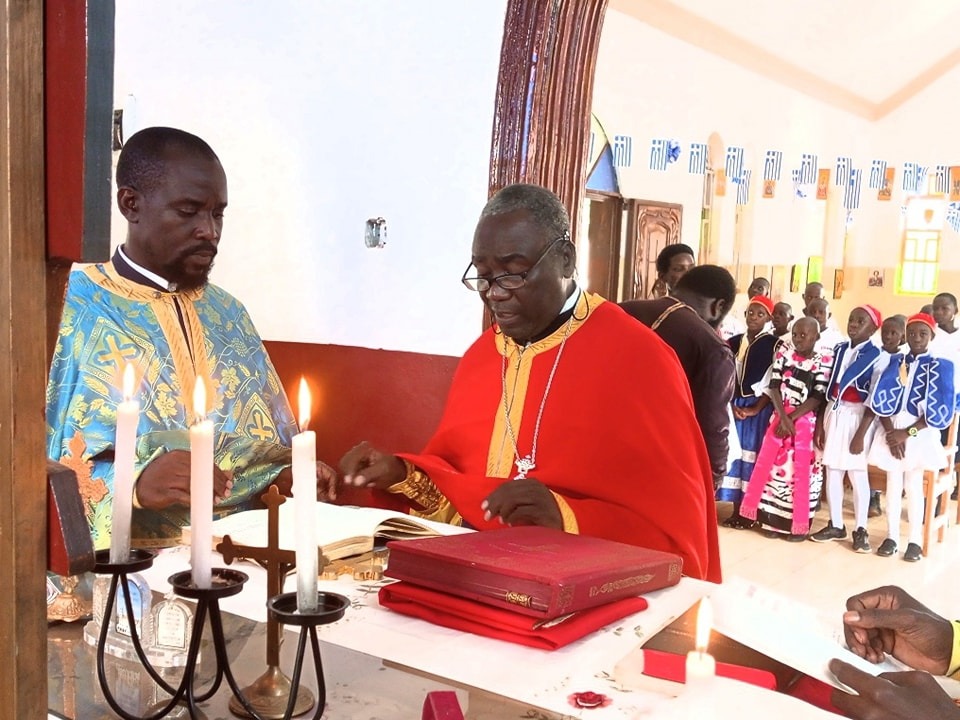
(Greek OXI! Day in Kampala. Note the kids in the background and the decorative flags above them.)
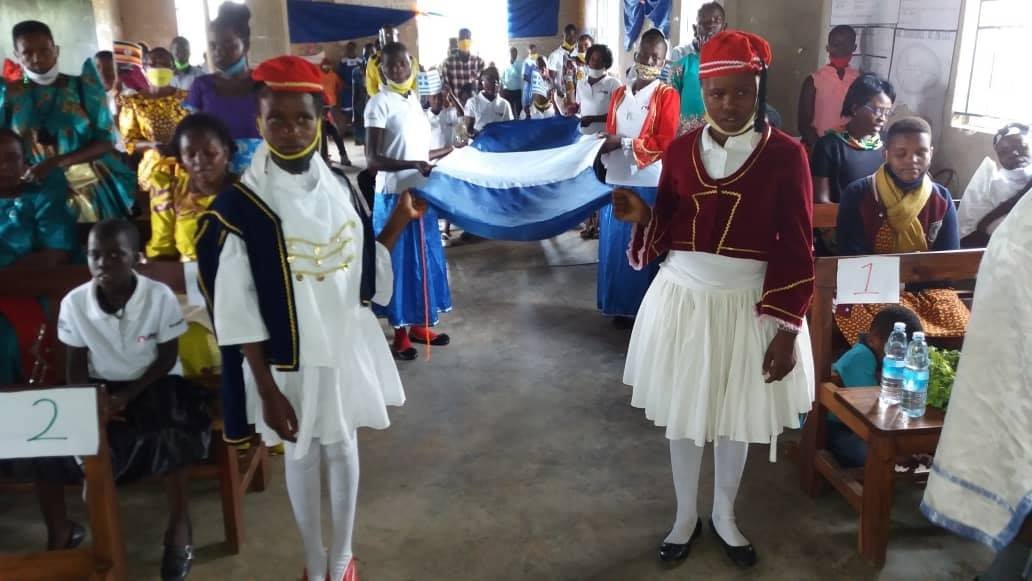
Where catechesis is lacking, this nonsense is nothing other than idolatry. But see the picture from the patriarchate. Isn’t that where the idolatry starts? And it’s one reason the Russians are doing so well— they didn’t come to preach Russia. Btw, I don’t mean to single anyone out in particular, in these pictures. The problem is not limited to Uganda, or even to Africa. But the young recognize it as a problem, and they do complain about it!
The Bible
It’s very hard to find any interest among the Orthodox “faithful” here— even among the clergy— in the Bible. Everybody already knows what the Bible is— it’s just a book of moral advice that you “apply to your everyday life”. And so the Liturgy, the Practice, and the Community become part of this other story that’s about me and my petty “everyday life”.
The Bible, though, is its own story— one story— one story!— not a collection of random tales that we can allegorize morally so as to “apply them to our everyday lives”.
The Bible is Israel’s own story of her exile with her One Creator God in the desert of Empire— and the arrival, right there, of God’s government “as in the sky, even on the land”. Memorize that!
It is Israel’s story, not our story, and we’re invited to join it. It’s an ongoing story. And it’s an objective story.
If we can step away for a moment from this obsession with ourselves, our “daily lives”, and our own (or someone else’s!) nationalistic pride, and engage directly with the old texts that we call the Bible—
—we will find ourselves standing among dead prophets who have come to life not as the fortune-tellers we always thought they were, but as living witnesses who saw something.
Then, having seen through their words what they saw, we can re-enter our own world, and assume the destiny that has placed us here, as their heirs— here in this moment, in this Uganda— or wherever you are in this fraught moment of history.
Through their texts, we can visit something that once existed somewhere else and is no more, that has disappeared forever. We will not find our “daily lives” there. We will not find the baGanda there, or the Americans, or the Greeks or colonial Britain and all its prudishness.
And when we stand in that circle of prophets, we will see more clearly that this very world in which we ourselves live today emerged from their world.
And we will understand that if their world ceased to exist, then our own does not need to exist either, and in fact is coming to an end.
And we’ll see not only that change is inevitable, but that the change that those prophets called for even then, is actually possible and desirable now.
Our task is to figure out how, then, to live in and even change this, our own world.
None of this— and therefore almost nothing of Christianity— much less Orthodoxy— has ever arrived in Africa. We come, speaking Greek or Latin or French or American— or now, Russian— talking about how Isaiah “predicted” Jesus, or how Revelation predicts the end of the world, but as far as I know, no one has ever asked, how Africans might respond to the good news that Jesus announced— the arrival of “God’s government— on the land as in the sky“? In general, empires aren’t very interested in other governments anyway, except as collaborators.
Africans are not stunted Europeans or Yankees. Most have never seen even a picture of the Mona Lisa, heard Mozart, or smelled Japanese incense. They’ve never heard of Marx or the Iliad, or, astonishingly, of E=mc2, either. But they’d sure like another government, another Empire.
And they’ve heard the Bible— sort of. Many Churches have brought their bibles and their dogmas both true and false, but never reciprocated by listening to, much less inhabiting, the stories of Kintu and Naambi, the First Couple in kiGanda myth, or understood how the story of the Son of Man might strike the sons of Kintu. And, by the way, there are 65 tribes in Uganda alone, each with its own language and stories and worldview— so, 65 Kintus.
Now we Orthodox have come, speaking of the “Trinity One in Being and Undivided”— but if the languages we’re trying to speak have no word for “Being”, how will we have any extended discourse on the Trinity One in Being?
Even if we could get masses of people to memorize some catechetical dogmas and then baptize them, we would not be building a church; still less the Church. Still less would we do so by baptizing them without teaching them anything at all.
But today, more than ever before, we have to listen to people speak from their own experience. Only in their own context will people ever learn to think with those non-fortune-telling prophets
The violence we’ve adopted, hoping to be heard
Now, the nonsense i will link to next is not only worse than what you see in the pictures above, it’s the direct result of that idolatry, a sign of desperation, and an indicator of degradation and collapse indeed. It’s from Tiktok:—
Syndesmos Day at St Makarios Seminary in Nairobi, Kenya
The challenge is that no one can imagine something they’ve never experienced. That’s why, for example, our liturgy here is so poor. No one’s ever seen a good one. Moreover, no one’s ever modeled pitch or harmony.
Likewise, the result of teaching people that the Bible is about our “everyday lives” or, alternatively, that it’s about something mysterious and scattershot called “typology” (the “patristic” approach), is that nobody has ever been exposed to what the Liturgy or the Scripture were about in their own right. And that is our problem.
The “born-again” solution now popular in the Nairobi seminary at first sight may seem more fun, but ultimately it is sheer violence and pandering. Because a loudspeaker is ultimately about domination, and who ever loved by force? And yes, once the fun stops, what have we learned?
“At least there is hope for a tree”
—That’s Job 14.7. The prophet continues, “If it’s cut down, it will sprout again, and its new shoots will not fail.”
In fact I had a very hopeful conversation with a priest the other day, perhaps the first one since i came here a year and a half ago.
He wanted to understand why Jesus had to turn bread and wine into his body and blood, and I was able to nail it it down with him, because he’d shown me 18 years ago what he was really asking.
I read somewhere that it took 1300 years for the Greek Fathers to digest the Bible, so i don’t think i’ve just now brought the whole of the Good News to Africa, but kindly indulge for a moment with me in the thought that we might just have just seen the bud of a shoot from a dying tree.
Because my friend came away with an understanding of Covenant.
Walk on both feet
Stories aren’t enough, though. To practical people in dire need, we have to show practical love. We have to feed and house and facilitate and cure and educate— even sacrificially. We have to be with people for people, as the fathers said of Jesus.
So this is the mission of the Church i’m asking you to support. I’ll keep trying to teach, but please— I’m really serious about needing your help for all these people i help.
At this very minute, I need another $2000. Once again i have only $4 in all accounts. So please help. We kept a young man from losing his job because of a natural disaster last week. We kept a woman and her 4 kids from being evicted, but we need another $200 for other arrears and meds.
We have four babies in the hospital and 4 more people who need to be in the hospital. Our orphans in Congo need $1000 immediately for rent and food.
Community and good news are in short supply. Let’s increase the volume.
Yes, emergencies— everything is chaos and disaster and emergency.
But the future is as bright as God’s promise.
And for better or worse, people give to causes that demonstrate success, so let’s go ahead demonstrate it!
